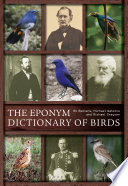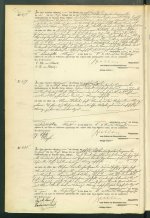Taphrospilus
Well-known member
Chloris kittlitzi (Seebohm, 1890) OD ser.6:v.2=no.5-8 (1890) - Ibis - Biodiversity Heritage Library
Calornis kittlitzi Finsch & Hartlaub, 1867 OD Beitrag zur fauna Centralpolynesiens - Biodiversity Heritage Library
Erythrura kittlitzi Bonaparte, 1850 OD t.1 (1850) - Conspectus generum avium - Biodiversity Heritage Library
Gygis alba kittlitzi Hartert, 1891 OD Katalog der Vogelsammlung in Museum der Senckenbergischen Naturforschenden Gesellschaft in Frankfurt am Main - Biodiversity Heritage Library
Zosterops kittlitzi Finsch, 1880 OD ser.4:Jahrg.28=no.149-152 (1880) - Journal für Ornithologie - Biodiversity Heritage Library
Aegialitis pecuarius Kitlitzii Reichenbach, 1851 Abt.3:Bd.2 [Atlas 2] (1836) - Die vollständigste Naturgeschichte der Vögel - Biodiversity Heritage Library Fig 1063 Aegialitis pecuarius Kitlitzii Reichenbach , Vollst . Naturg . Vög . , Grallatores , Taf . CV ( 185 ) , Fig . 1063 ( 1851— Nach A. B. Meyer , Index zu Reich . Werken , p . 28 ) Not sure where to find.
Columba kitlitzii Temminck, 1836 v.4 (1838) - Nouveau recueil de planches coloriées d'oiseaux - Biodiversity Heritage Library (Not in BOW key?)
Chroicocephalus kitlitzii , Bruch, 1853 Jahrg.1-2=no.1-12;Suppl.:Jahrg.1 (1853-1854) - Journal für Ornithologie - Biodiversity Heritage Library
Not sure where to find syn. Larus pipixcan,?
Uria Kittlitzii Brandt Icon . Av . Amer . rossic . tab . 7 , fig . 4 . p . 277 Jahrg.7-8=no.37-48 (1859-1860) - Journal für Ornithologie - Biodiversity Heritage Library (No idea where to find Brandts publication and which year

The Key to Scientific Names - Birds of the World
I opened this thread only as I am wondering if he has had an additional name as mentioned in German Wikipedia Heinrich von Kittlitz – Wikipedia . So Wilhelm really an additional name or wrong in Wikipedia? Here Reisen an den Rand des Russischen Reiches even as Friedrich Wilhelm Heinrich Freiherr von Kittlitz und Ottendorf . Or German Representations of the Far North (17th-19th Centuries) with Wilhelm. Or Freiherr Wilhelm Friedrich August von Kittlitz und Ottendorf
Kittlitzia Hartlaub, 1891 OD v.12 1891-1893 - Abhandlungen herausgegeben vom Naturwissenschaftlichen Verein zu Bremen - Biodiversity Heritage LibraryThe Bonin Island Greenfinch was discovered by Kittlitz in 1828, but was not regarded by its discoverer as distinct from European species.
Calornis kittlitzi Finsch & Hartlaub, 1867 OD Beitrag zur fauna Centralpolynesiens - Biodiversity Heritage Library
Erythrura kittlitzi Bonaparte, 1850 OD t.1 (1850) - Conspectus generum avium - Biodiversity Heritage Library
Gygis alba kittlitzi Hartert, 1891 OD Katalog der Vogelsammlung in Museum der Senckenbergischen Naturforschenden Gesellschaft in Frankfurt am Main - Biodiversity Heritage Library
Zosterops kittlitzi Finsch, 1880 OD ser.4:Jahrg.28=no.149-152 (1880) - Journal für Ornithologie - Biodiversity Heritage Library
Aegialitis pecuarius Kitlitzii Reichenbach, 1851 Abt.3:Bd.2 [Atlas 2] (1836) - Die vollständigste Naturgeschichte der Vögel - Biodiversity Heritage Library Fig 1063 Aegialitis pecuarius Kitlitzii Reichenbach , Vollst . Naturg . Vög . , Grallatores , Taf . CV ( 185 ) , Fig . 1063 ( 1851— Nach A. B. Meyer , Index zu Reich . Werken , p . 28 ) Not sure where to find.
Columba kitlitzii Temminck, 1836 v.4 (1838) - Nouveau recueil de planches coloriées d'oiseaux - Biodiversity Heritage Library (Not in BOW key?)
Chroicocephalus kitlitzii , Bruch, 1853 Jahrg.1-2=no.1-12;Suppl.:Jahrg.1 (1853-1854) - Journal für Ornithologie - Biodiversity Heritage Library
Not sure where to find syn. Larus pipixcan,?
Uria Kittlitzii Brandt Icon . Av . Amer . rossic . tab . 7 , fig . 4 . p . 277 Jahrg.7-8=no.37-48 (1859-1860) - Journal für Ornithologie - Biodiversity Heritage Library (No idea where to find Brandts publication and which year
The Eponym Dictionary of Birds
A comprehensive dictionary listing all the people whose names are commemorated in the English and scientific names of birds.Birdwatchers often come across bird names that include a person's name, either in the vernacular (English) name or latinised in the scientific nomenclature. Such names are...
books.google.de
Crake genus Kittlitzia Hartlaub, 1892 NCR [Now in Porzana]
Kittlitz's Plover Charadrius pecuarius Temminck, 1823 [Alt. Kittlitz's Sand Plover]
Kittlitz's Murrelet Brachyramphus brevirostris Vigors, 1829
Kittlitz's Thrush Zoothera errestris Kittlitz, 1830 EXTINCT [Alt. Bonin Thrush]
Kittlitz's Wood Pigeon Columba versicolor Kittlitz, 1832 EXTINCT [Alt. Bonin Wood Pigeon, Bonin Black Pigeon]
Kittlitz's Starling Aplonis corvina Kittlitz, 1833 EXTINCT [Alt. Kosrae Starling]
Gull sp. Chroicocephalus kittlitzii Bruch, 1853 NCR [Alt. Franklin's Gull; JS Leucophaeus pipixcan]
Kittlitz's Crake Porzana monasa Kittlitz, , 1858 EXTINCT [Alt. Kosrae Crake]
White-eye sp. White-eye sp. Zosterops kittlitzi Finsch, 1880 NCR [Alt. Grey-brown White-eye; JS Zosterops cinereus]
Oriental Greenfinch ssp. Carduelis sinica kittlitzi Seebohm, 1890
White Tern ssp. Gygis alba kittlitzi Hartert, 1891 NCR [JS Gygis alba candida]
Friedrich Heinrich Freiherr von Kittlitz (1799–1874) was a Polish-born German artist, naval officer, explorer and ornithologist. He undertook a round-the-world journey, the Senjawin Expedition (1826–1829), during which specimens of the now-extinct bird species listed above were collected. Based on this voyage, Kittlitz wrote Twenty-Four Views of the Vegetation of Coasts and Islands of the Pacific (English edition, 1861). He was a friend of Eduard Rüppell (q.v.) and accompanied him to North Africa (1831), but due to poor health he had to return to Germany.
The Key to Scientific Names - Birds of the World
Capt. Friedrich Heinrich Freiherr von Kittlitz (1799-1874) Prussian Army, explorer, artist, ornithologist (syn. Aplonis opaca, subsp. Chloris sinica, syn. Erythrura trichroa, syn. Gygis alba candida, syn. Zosterops cinereus) (see kittlitzii).
Capt. Friedrich Heinrich Freiherr von Kittlitz (1799-1874) Prussian Army, explorer, artist, ornithologist.
• ‡ (Sturnidae; syn. Aplonis † Kosrae Starling A. corvina) "1093. Kittlitzia corvina (Kittl.) 131) ... 131) ... Ich bin nicht geneigt, das Genus Aplonis anzuerkennen, wie ja Sharpe selbst auch (l. c., p. 125) seine Zweifel an dem Werte desselben ausspricht. Ein nicht scharf ausgeprägtes Genus hat für mich im Allgemeinen keinen Wert. Indessen glaube ich wohl, dass man diese langschnäblige Calornis (die nach Sharpe's Definition nicht zu Calornis, sondern zu Aplonis gehören würde) wird generisch sondern müssen. ... Ich schlage für die Art den Gattungsnamen Kittlitzia vor, zu Ehren des Ornithologen Bar. v. Kittlitz" (Hartert 1891); "Kittlitzia Hartert, 1891, Kat. Vog. Mus. Senckenberg., p. 75, note. Type, by monotypy, Lamprothornis corvina Kittlitz." (Amadon in Peters, 1962, XV, p. 75).
• ‡ (Rallidae; syn. Zapornia † Kosrae Crake Z. monasa) "Wenngleich v. Kittlitz seinem Rallus monasa mit grossem Unrecht das Vorhandensein wirklicher Steuerfedern abspricht, der Vogel aber keineswegs schwanzlos ist, so ist er doch nahezu flugunfähig, denn seine weichen widerstandslosen Schwingen erscheinen zu richtigem Fliegen nicht tauglich. Es handelt sich hier also um eine neue und sehr interessante Form, die ich zu Ehren ihres Entdeckers, eines der ausgezeichnetsten Naturforscher aller Zeiten Kittlitzia n. g. benennen möchte." (Hartlaub 1892); "Kittlitzia Hartlaub, Abh. nat. Ver. Bremen, 12, 1891, p. 391. Type, by monotypy, Rallus monasa Kittlitz. Not Kittlitzia Hartert, 1891." (Peters, 1934, II, p. 188).
Capt. Friedrich Heinrich Freiherr von Kittlitz (1799-1874) Prussian Army, explorer, artist, ornithologist (syn. Brachyramphus brevirostris, syn. Charadrius pecuarius, syn. Larus pipixcan, syn. Saundersilarus saundersi) (see kittlitzi).
I opened this thread only as I am wondering if he has had an additional name as mentioned in German Wikipedia Heinrich von Kittlitz – Wikipedia . So Wilhelm really an additional name or wrong in Wikipedia? Here Reisen an den Rand des Russischen Reiches even as Friedrich Wilhelm Heinrich Freiherr von Kittlitz und Ottendorf . Or German Representations of the Far North (17th-19th Centuries) with Wilhelm. Or Freiherr Wilhelm Friedrich August von Kittlitz und Ottendorf






